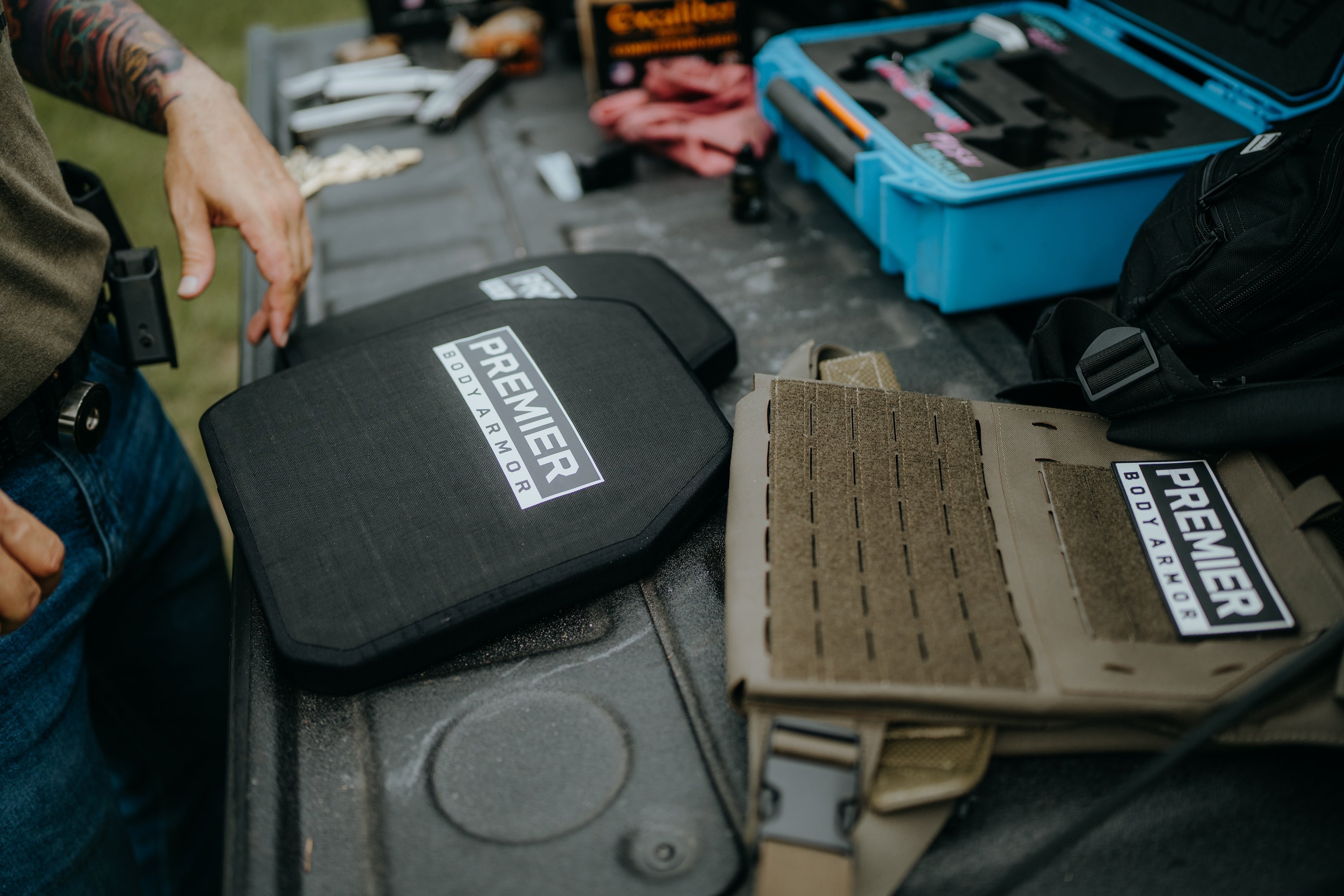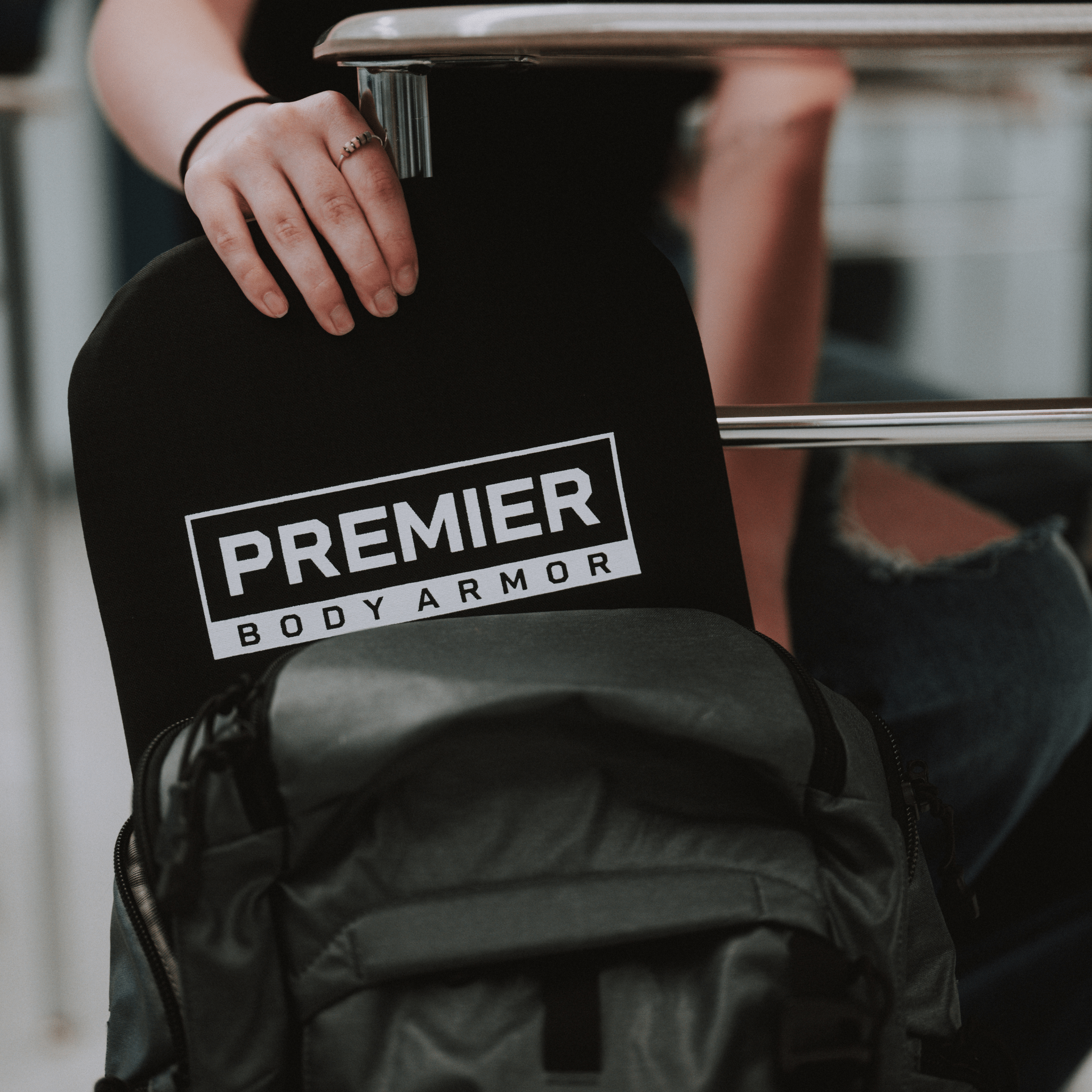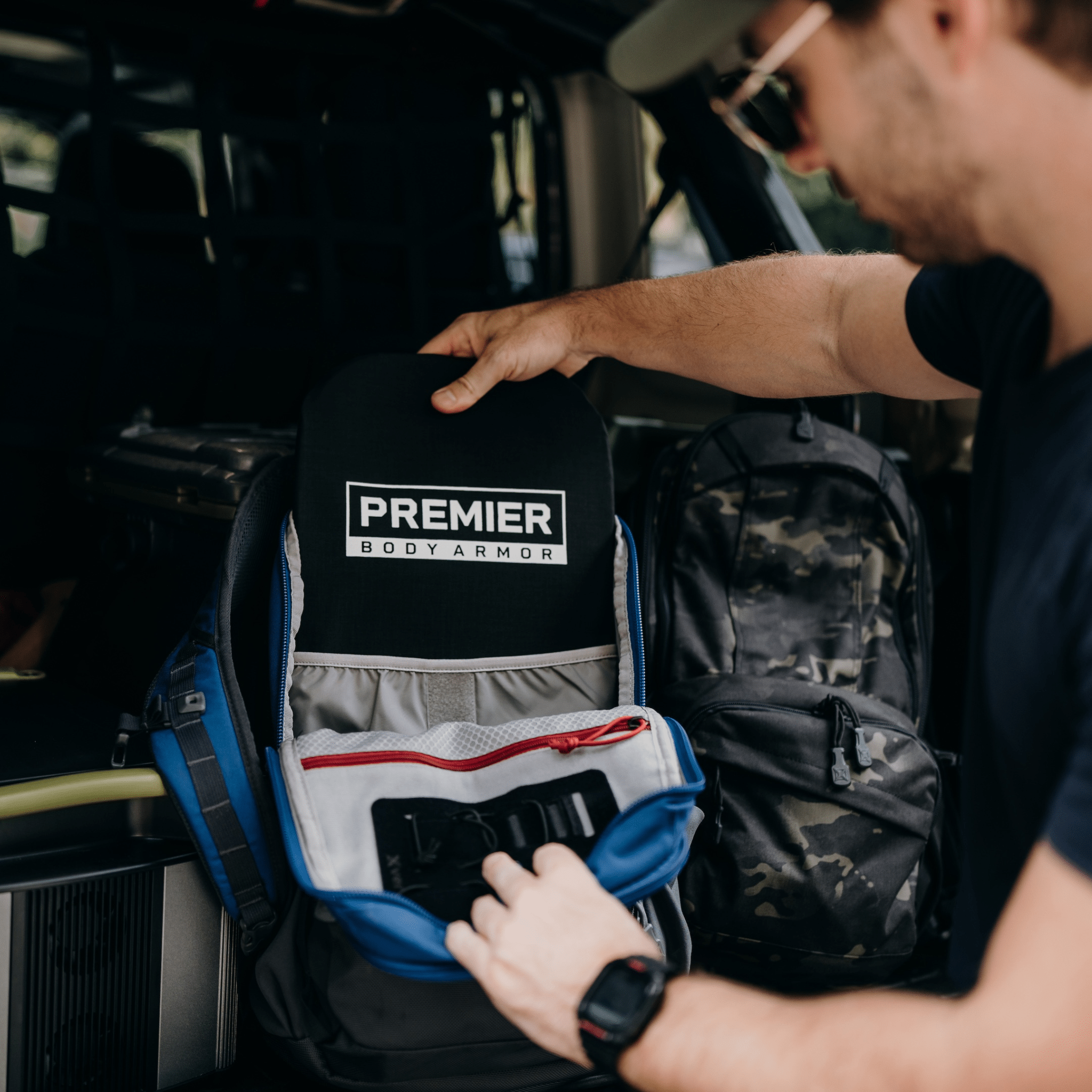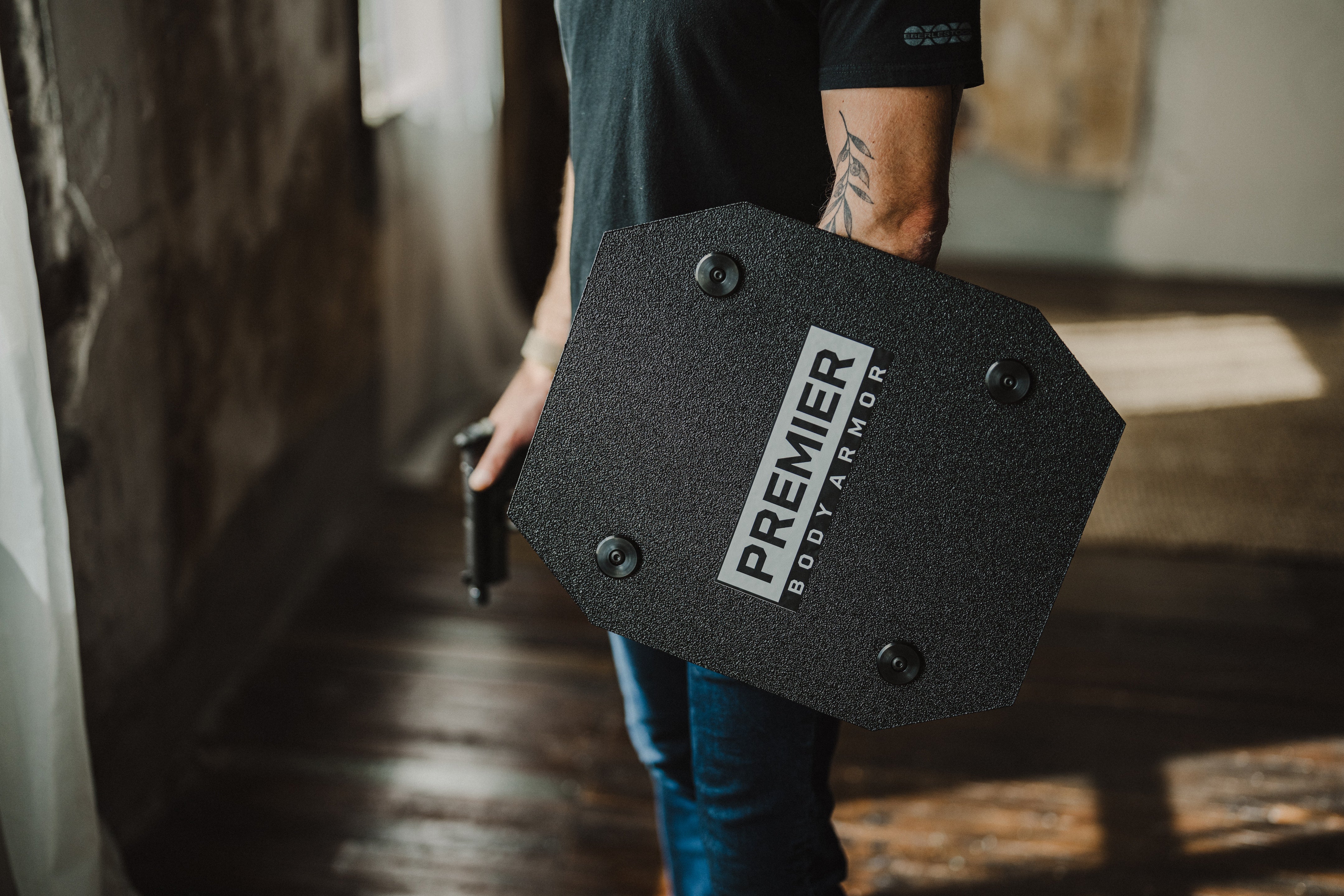The Evolution of Body Armor
Body Armor: A History
Since the beginning of humankind, we've fought and killed in the name of conquest — the conquest of food, water, shelter, ideas, and even love. Over time, we evolved technologically, and so did threats against our lives. The evolution of body armor had to follow suit.

The First Body Armor
The history of body armor had an early start. Our prehistoric ancestors used animal skins to prevent attacks and injury in the earliest days. We now know, to this day, that this strategy was quite successful. From armadillos to piranha-proof fish, we've taken 'bioinspiration' from many creatures. After all, Mother Nature is tougher than nails — It's no wonder we've tried replicating her strength for years.
Full Metal Body Armor
But as civilization advanced, gone became the days of relying on animal skins for protection, as we started utilizing wooden shields. Soon enough, though, metal rose to power, making for a marvelous feat: the notorious 'suit of armor' worn by Knights of the Middle Ages.

However, after Chinese alchemists invented gunpowder, or 'flaming medicine,' as they called it, in the ninth century, the protective gear game had to change. As it turns out, metal body armor is effective against a sharp blade, but a bullet? Not so much.

Even so, it didn't take long for the invention of gunpowder to spark the invention of the firearm. The first firearm is what historians call the Chinese Fire Lance (an ancestor of the modern gun). Still, the use of firearms didn't expand until gunpowder entered the West in the 16th century. And yet, once that happened, everything changed. Firearms became more and more lethal as time went on, and metal protective gear became effectively useless.
Then a new design emerged: soft body armor.
19th Century Armor
The medieval Japanese manufactured armor from silk. This design was the first recorded instance of soft body armor, but it wasn't until the 19th century that soft body armor premiered in the United States. At that point, the U.S. military considered using soft body armor in combat. However, the cost of silk, plus its inability to protect against ammunition traveling at velocities greater than 600 fps, made the concept unfit for modern warfare.
Body Armor Improves with the Flak Jacket
Come the 20th century, however, bloodier battles demanded more protective armor. During World War II — the bloodiest war in human history — a new generation of armor developed: an anti-ballistic bulletproof vest, or the 'flak jacket,' made out of ballistic nylon. Flak jackets were largely protective against ammunition fragments. But, it was vulnerable to most pistol and rifle shots and was also heavy and bulky.

Body Armor Standards
To combat heavier artillery, advances in body armor were all but essential. The first signs of truly advanced body armor entered the picture in the late 1960s when the National Institute of Justice (NIJ) initiated a research program to develop lightweight body armor that on-duty police officers could wear. Throughout the research, new fibers were woven into a lightweight fabric holding extraordinary ballistic-resistant properties. From then on, the NIJ set performance standards determining ballistic-resistant requirements for police body armor. Because of the NIJ and their work, the body armor industry changed forever, as they made today’s modern-day body armor a possibility.
Then, Kevlar came about. Developed by chemist Stephanie Kwolek in 1965, Kevlar is a supremely lightweight, flexible, and durable ballistic material. Interestingly enough, Kevlar was originally designed for car tires. However, it took very little time for body armor manufacturers to realize its usefulness in the field. Kwolek's invention was, without a doubt, revolutionary and is recognized for saving thousands of lives.

Modern Body Armor
To that point, body armor has evolved from clunky, heavy armor to lightweight, concealable protection. Before the Vietnam War, body armor was, for the most part, only utilized by an infantryman or, for example, a police officer. That, however, is no longer the case. The idea that military personnel or law enforcement should gatekeep body armor is outdated. Today, our body armor — like the Everyday Armor T-Shirt — is lighter than ever, more disguised, and more suitable for the ordinary person. We are seeing the best concealable body armor in history available to the public, which serves as justice because everyone has the right to maximum defense.
Needless to say, after fast-forwarding through the history of body armor, we come to the present day in which the predator's teeth are sharpening. Weapons and ballistic threats are evolving rapidly and becoming more and more deadly. Therefore, to provide products to completely and utterly protect the wearer, we will push the boundaries of innovation really hard, really fast, to toughen our defenses. Our speed of evolution must match threat’s against our lives. From Premier Body Armor, more is to come.

References










Leave a comment